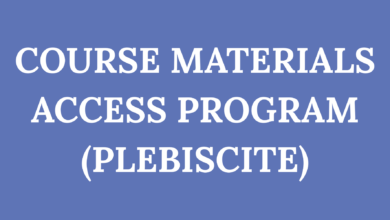Students protest Israel-Hamas war in support of Palestine
Approximately 100 students marched from the Education Centre to Main Quad, protesting the Israeli occupation of Gaza.
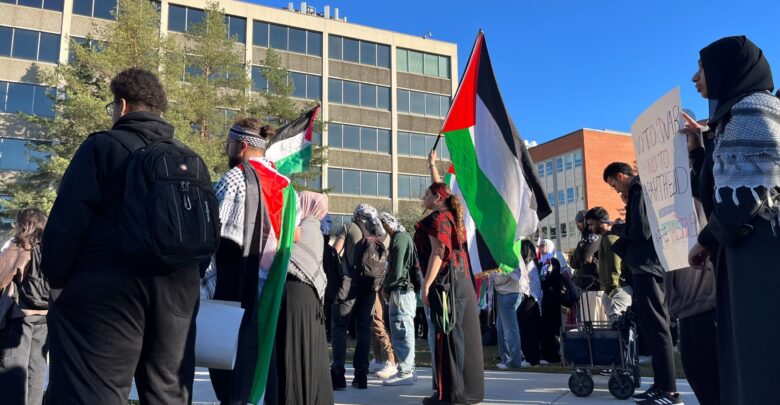 Katie Teeling
Katie TeelingAt the University of Alberta on October 20 at 3:00 p.m., students marched to raise awareness for recent events in the Gaza Strip.
On October 7, Hamas, a Palestinian militant group, attacked civilians at a music festival in Israel, where at least 260 Israelis were killed. Since then, a war has broken out between Hamas and Israel. As of November 7, the total death toll in Israel has surpassed 1,400, and at least 10,000 in Gaza. The Israel Defense Forces (IDF) said 241 people have been held hostage by Hamas. In response, Israel cut off Gaza’s access to food, water, and electricity, while also bombarding the Gaza Strip with airstrikes.
Approximately 100 people marched down 87 avenue to 116 street, then down Saskatchewan Drive, before finishing on Main Quad.
Those walking by the Education Centre could hear chants of “from the river to the sea, Palestine you will be free.” The phrase stems from various Palestinian self-determination movements, but has recently come under fire for being anti-Israel. Protesters were also chanting “free, free Palestine.”
The organizer of the protest, who wishes to remain anonymous, gave a speech before the march began. She condemned the recent actions of the Israeli government against civilians in the Gaza Strip.
“This is a war crime. This is a violation of international law as stated by the United Nations.”
She emphasized that many of the lives lost belong to children, as nearly half of Gaza’s population is under the age of 18.
“These are innocent civilians who have been basically born into their death.”
“Devastated isn’t even a word to describe the pain we are feeling,” speaker says
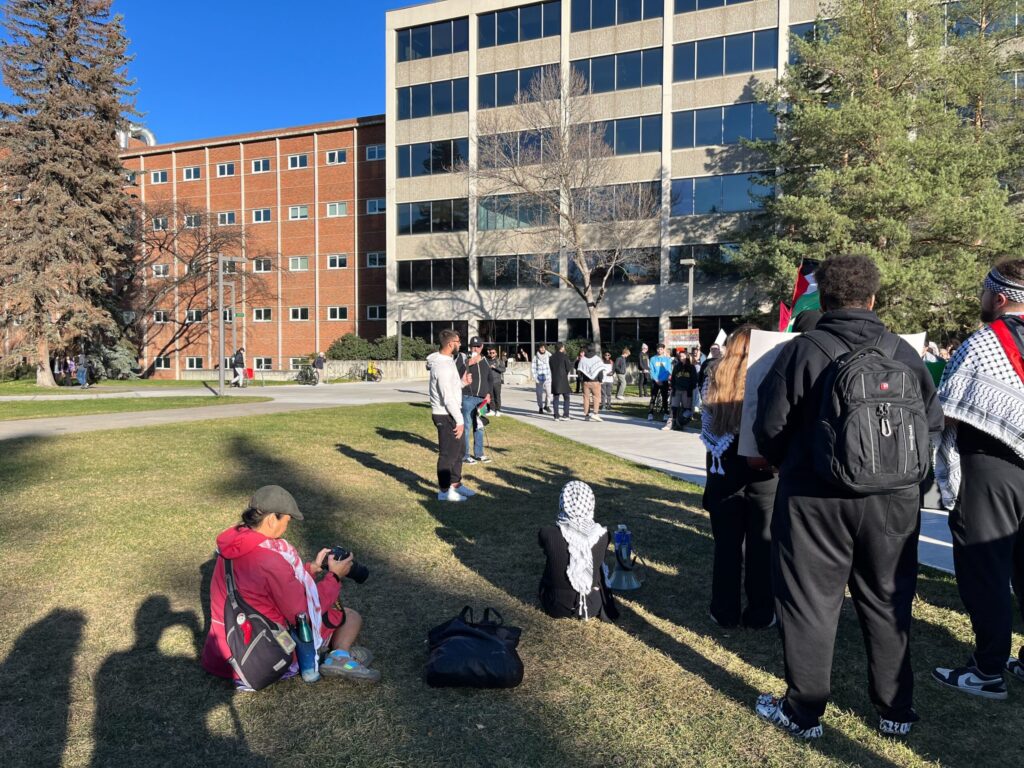
After completing their route, protesters gathered on Main Quad. The main organizer gave a short speech urging protesters to use their voices to educate people about the Israeli government’s actions in the Gaza Strip.
“We all have our obligation to share what’s going on and to learn and educate ourselves. To anyone and everyone, no one should be allowing this to happen,” she said. “No one should be avoiding these conversations. No one should be too scared to speak up. Whether that’s in school or in the media — you have a voice and it matters. Make sure you use it.”
“What Israel is doing to the Palestinian people is wrong. What the Israeli government is doing is wrong. This occupation is wrong.”
Kareem Haymour was the next speaker. He began by saying that Muslims around the world do their best to “give the best image of the Muslim nation.” He also discussed the impacts the news of the occupation in the Gaza Strip has had on Muslims worldwide.
“Devastated isn’t even a word to describe the pain we are feeling. There is no word in the English dictionary to describe the pain all Muslims around the world are feeling, seeing our brothers and sisters going through this occupation in Gaza.”
Haymour encouraged those present to read verses in the Quran that are “comforting to the heart and that put it at ease.” He stressed the importance of looking at the positives, even during times of crisis.
“Even though the people in Gaza are struggling, are going through this occupation, experiencing terror that probably none of us will ever experience.”
Because those in the Gaza Strip are true believers, they will be successful, Haymour continued. He ended his speech by saying that those who died were steadfast in their beliefs and never “buckled.”
“Try and live these words, my brothers and sisters. The rallies and protests are helping. We won’t stop until we get our way. The help of Allah is near.”
He encouraged those present to continue donating, since that is “what our brothers and sisters in Palestine need the most.”
“It’s the most I could have done,” protest organizer says
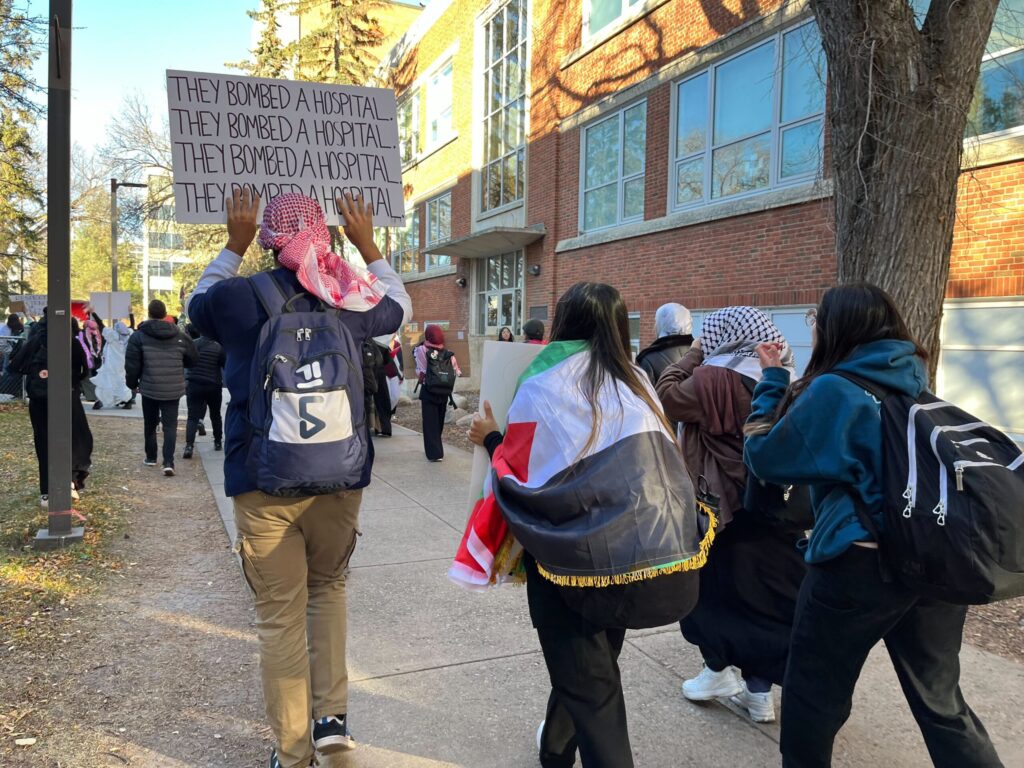
On October 17, a blast at the Al-Ahli Arab Hospital in Gaza occurred, killing between 100 and 300 people. On October 21, the Canadian Forces Intelligence Command found with a “high degree of confidence” that Israel was not responsible for the blast. Instead, it is likely the blast was caused by “an errant rocket fired from Gaza,” the statement said.
At the time of the protest, the cause behind the blast was unclear. The march organizer was in class when she heard the news.
“I had to leave, I was so angry,” she said. “I messaged my friends, I was like ‘I don’t care, no way anyone can condone this.’”
She knew a protest had to happen.
“I’ve known so many people who wanted to organize this, but were too scared to speak up because no one wants to get suspended from school. No one wants backlash from the media. It’s a crazy time right now.”
She encourages people to use their voices, even if they are afraid, because Canadians have freedom of speech, while Palestinians do not.
“The kids in Gaza don’t have that. People in Gaza don’t have that. We can say whatever we want as long as we’re respectful,” she said. “Keep talking, keep engaging, keep spreading [the news]. It’s the best thing we could do to help from here.”
Her main goal was to spread awareness about what is happening in the Gaza Strip. To her, many people either don’t care, don’t understand the severity of what is happening, or are “[too] stuck to a certain side to ever try to have the compassion to look at the other.” However, if people talk about what is happening, more people will understand, she said.
“You have to talk about the dead kids in Gaza, [and] you have to talk about the doctors performing surgeries in the street. You have to talk about the lack of electricity, water, and food,” she said. “This isn’t some post you scroll [past] on Instagram. These are real lives, real kids, real people with names. They deserve to be just as valued.”
Over the past week, many protests have been held in support of Palestine. She said these protests have been respectful, and is thankful Edmonton has a strong Muslim community. As well, she’s glad that she organized the protest at the U of A.
“I don’t have any regrets about it. It’s the most I could have done.”
“Although it might be scary, we have to come out here because the Palestinians are 10 times more scared, but they’re still out there,” U of A student says
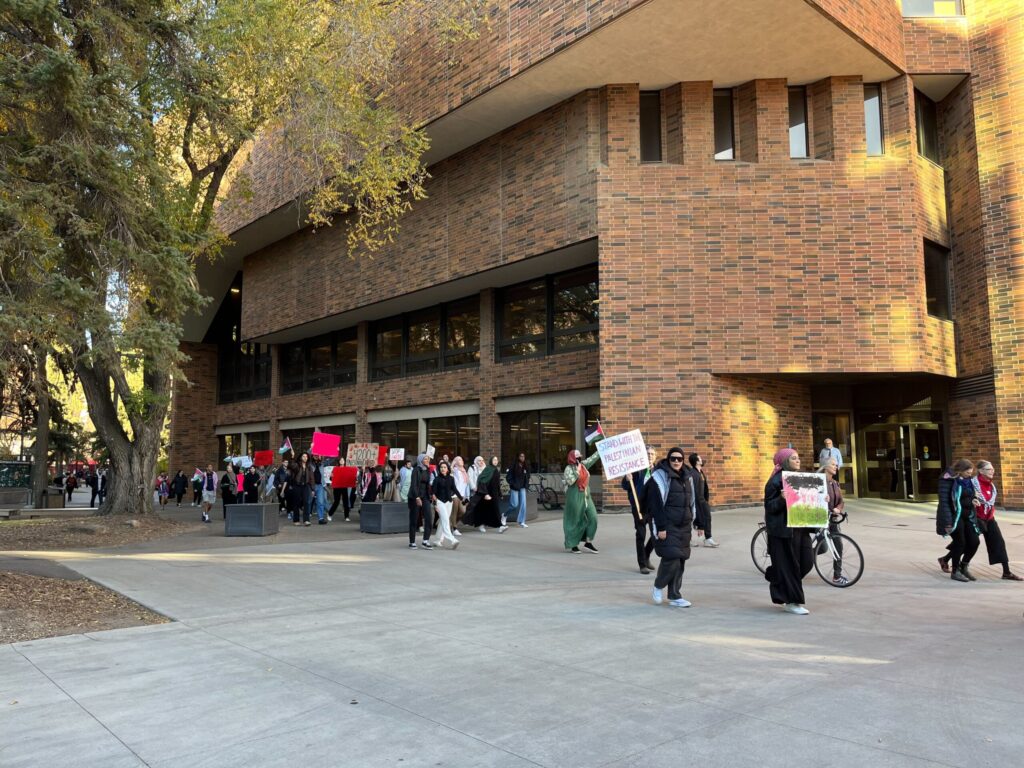
Mohamed El Henawy, a third-year U of A psychology student, said he came out to protest the oppression Palestinians are experiencing.
“It’s oppression, it’s colonization. To stay silent during injustice is equally as bad as committing it.”
As well, El Henawy thinks coming out to protest is important, because it can help combat bias in the media.
“For those who are uneducated, who just see the media, they’re not going to understand the issue. But when you come out and you see there’s people who support Palestine, people who care. People begin to think, then you bring in more people.”
Bilal Ali, a U of A student, said that he “came out to the march today because a lot of people seem to be confused, thinking that October 7 was the start of all this.”
“The reality is that these people are resisting over 75 years of oppression, systematic genocide, ethnic cleansing, and apartheid.”
It is important for people to use their voices, despite fear they may feel about doing so, Ali said.
“Although it might be scary, we have to come out here because the Palestinians are 10 times more scared, but they’re still out there. They’re still [using] their voices. They’re still standing up against oppression. So, we need to do the same.”
People can show their support for Palestine through donating and educating themselves, Ali and El Henawy both said.
“They’re blockaded right now. They need our money [and] food more than they need our thoughts, more than they need anything. They need actual assistance,” El Henawy said.
“Understand the boundaries, the history, [and] everything [else]. So then you can go on and educate your friends. You can educate your families. You can tell people what’s truly happening,” Ali said.
“It is clear to us that we need to show solidarity and show support for the oppressed Palestinians,” Fightback member says
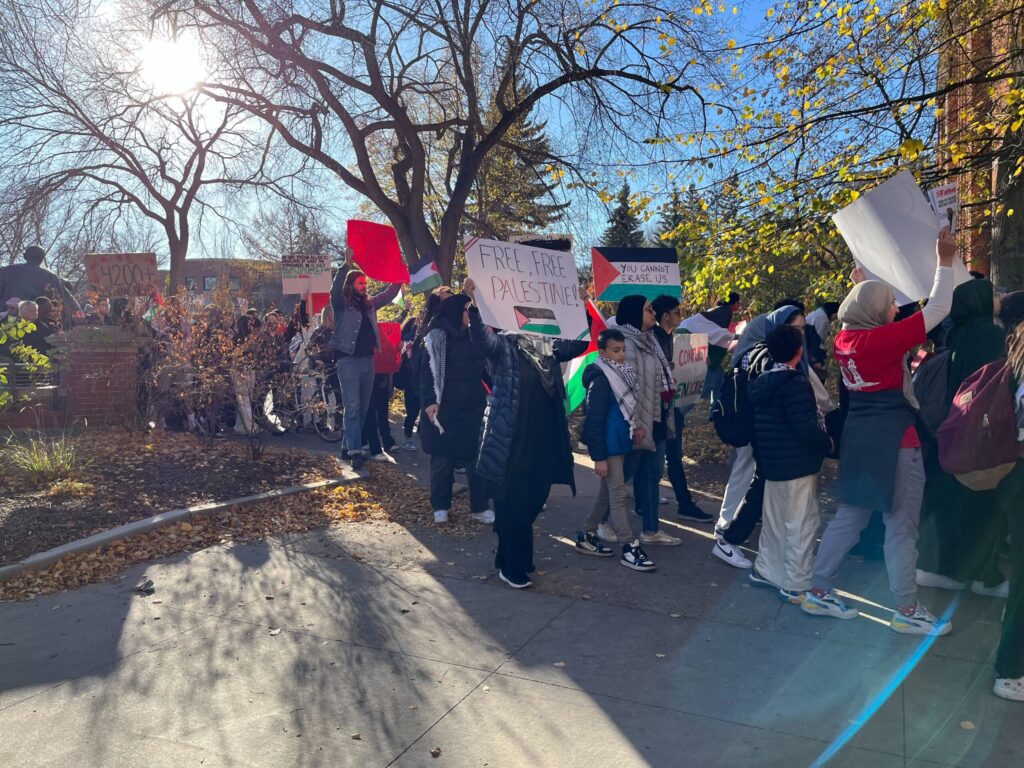
Connor Archibald, a MacEwan student, said that as a Communist, he feels it is his duty to stand with oppressed peoples.
“I don’t think that there’s anything more important than standing with oppressed people of any nation. This particular slaughter is just incalculable. As a Communist, I feel it is of the utmost importance to show solidarity, raise awareness, and fight imperialist propaganda that we see heralded by our leaders.”
Stefan Salegio, a Communist associated with Marxist group Fightback, said it is clear that Israel is oppressing Palestine.
“It is clear to us that we need to show solidarity and show support for the oppressed Palestinians.”
Cayden Ransom, a history student at the U of A, said that many major news stations show bias toward Israel. He thinks it is important to show up to protest to show that people do support Palestine.
“It’s important to make sure that those who do support Palestine do not feel alone and isolated by the media onslaught that they are subjected to.”
Additionally, Archibald thinks that protesting reaches people who may be misinformed about the issue.
“We are all embedded in our echo chambers online. Some people might actually not know what’s going on or think that it’s taboo to speak up for the Palestinians. We’re here to show that’s not true.”
UPDATE: This article was updated November 8 at 4:38 p.m. to add the death toll in Israel, context behind the phrase “from the river to the sea, Palestine you will be free,” and information surrounding the cause of the Al-Ahli Arab Hospital blast in Gaza.
UPDATE: This article was updated November 13 at 12:08 p.m. to add that the Canadian Forces Intelligence Command found with a “high degree of confidence” that Israel was not responsible for the blast at the al-Ahli Hospital in Gaza.



